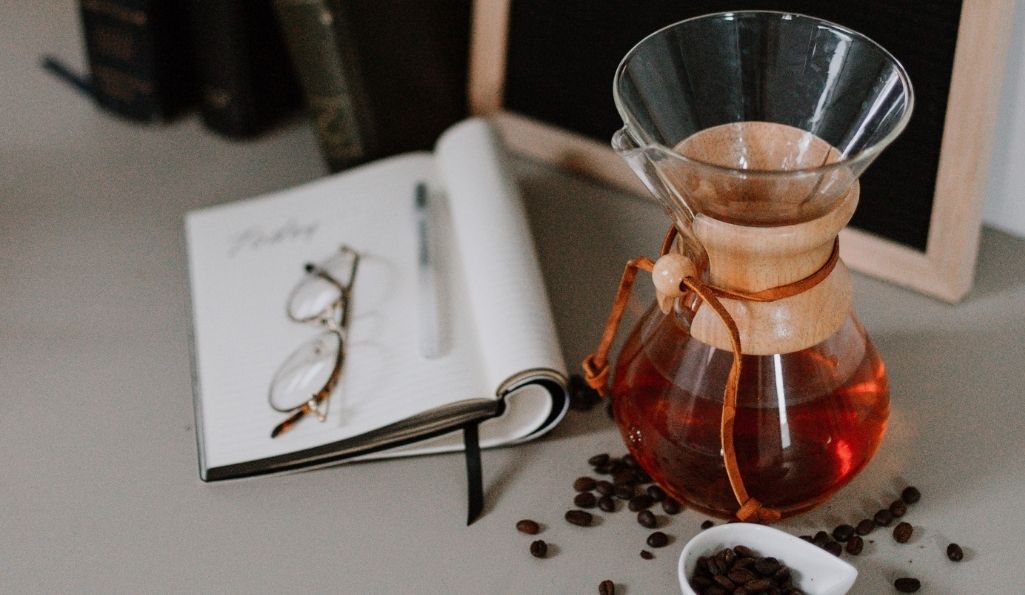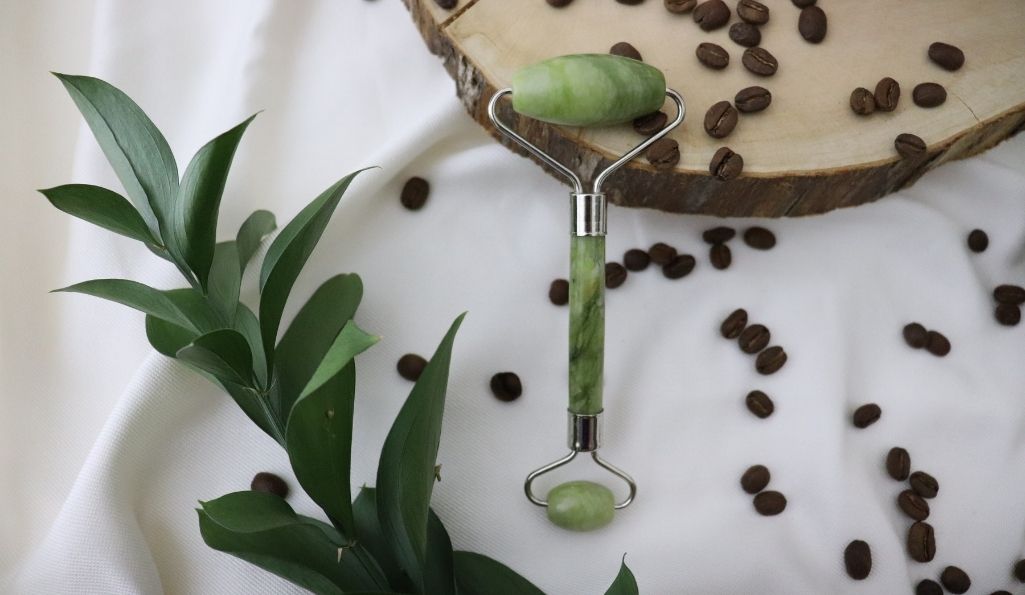How to develop a healthy routine in lockdown
The winter lockdown is predicted to be the toughest yet on our mental health, but following a structured day could help. Here’s why…
Why maintaining a routine has never been more important
The new year has plunged us straight into another lockdown – the third since March – forcing us once again to wipe our diaries, cancel plans and wonder whether it’s even worth getting out of bed and dressed if no one’s going to see us do it. It’s safe to say this isn’t the start to 2021 we’d hoped for.
Between the fact it’s gloomy January (notoriously the most depressing month of the year thanks to the cold weather and absence of festive cheer), and the lack of novelty that comes with locking down again after a year starved of socialising and celebrations, it’s understandable we’re all feeling fatigued at the prospect of more time trapped indoors, like a nation of forlorn Rapunzels without a hair braid or readily available vaccine to see us out of confinement.

Despite the fact there’s hope on the horizon – three vaccines have, after all, been approved – even Boris Johnson has been up front about the fact the third lockdown ‘will be the hardest yet’.
According to experts in the fields of mental and physical health, forming and maintaining a sense of routine is especially important right now.
‘Having a consistent routine can be very beneficial to maintaining your mental health, as it allows us to focus on things that you can control,’ points out Emma Carrington, advice and information manager at charity Rethink Mental Illness. ‘It can be as simple as setting an alarm to remind yourself to take a screen break and make a cup of tea to help split up your day,’ she suggests, adding that as different things work for different people, it’s worth thinking about what aspects of routine have worked for you in the past and trying to factor these into your day again.
Mike Brooks, a personal trainer at boutique London gym SIX3NINE, agrees. ‘It is easier to maintain our healthy habits when they are part of a routine,’ he says. ‘Without a structure, it becomes easy to over consume on snacks, alter our sleeping patterns, and procrastinate on our workout plans. Before you know it you’ve spent the whole day binge-watching Netflix and eating leftover Christmas chocolate – which wouldn’t be so bad if it wasn’t a daily occurrence during lockdown.’

SIX3NINE gym in Holborn
It’ll come as news to noone that exercise is a vital part of a healthy routine. ‘It’s important to have a weekly workout plan,’ advocates Brooks. Gyms, for now, remain closed, but outdoor exercise is still permissible either alone or in the company of one other. Meanwhile, gyms like SIX3NINEs are offering virtual personal training sessions online.
‘If you have time to train three times a week you could have one strength session, one HIIT session, and one bike ride,' suggests Brooks. 'If you can only train twice, you could divide your workouts into upper body and lower body. The way you organise your workouts is not as important as the presence of a clear structure.’
While getting a good night’s sleep isn’t always easy with a whir of Covid horror stories, job insecurities and uncertainty over the future churning in our minds, it’s also of the utmost importance right now. ‘Good sleep is one of the biggest factors for good mental wellbeing, and going to bed and waking up at consistent times can be an effective way to ensure you get enough rest, and to set you up for the day,’ confirms Carrington.

Both Brooks and Carrington acknowledge the fact that January makes forming a routine all the more challenging. ‘We know that many people find January a difficult time of the year,’ says Carrington, citing the cold weather and money worries after Christmas as the main reasons why. ‘This year, the added pressure of a new lockdown will undoubtedly be difficult for a lot of people. With the continued threat of the virus and continued disruption to our daily lives, it’s not surprising that people may be experiencing increased levels of stress, worry and fatigue.’
Brooks believes the sheer length of time we’ve been living subdued versions of our lives is making this third lockdown all the more taxing on our morale. ‘We are feeling the cumulative effects of almost a year of living with government restrictions alongside a genuine fear for the wellbeing of ourselves and our loved ones,’ he says. ‘In the lead up to Christmas and with vaccines on the way I think many of us thought our days of living with Covid were numbered. There’s absolutely no reason to beat yourself up if the lockdown has taken a toll on your mental health. Know that you are not alone.’

Carrington agrees. ‘By now, we know that more time at home doesn’t necessarily mean more time to rest and prioritise things which can support our mental health,’ she says. ‘While the hope of a vaccine is on the horizon, against a backdrop of bad news and darker winter days it’s really important that we are proactive when it comes to looking after our mental health.’
With so much uncertainty and time stuck at home mulling over the worrying news, how do we go about adopting a positive mindset and looking after our mental wellbeing?
‘Focus on taking each day as it comes, and make a note of the activities that helped to boost your wellbeing last year so you can prioritise them,’ advises Carrington. ‘Most importantly of all, don’t try to deny how you feel. In a situation like this, it’s entirely normal to feel sad or anxious, and you shouldn’t ignore those feelings. Instead, try to share them with a friend or loved one,’ she adds, suggesting those uncomfortable discussing their feelings record them in a journal instead.
Factors including sudden job loss or the added pressure of homeschooling can make upholding a routine a lot more difficult. If you’re struggling to stick to a routine, Carrington says it’s important not to bite off more than you can chew.

‘A routine doesn’t have to be complicated, and can be as simple as taking five minutes for yourself each day to take stock and reflect,’ she says. ‘Try to focus on the little things, like making a note of something that made you smile today. Most importantly of all, don’t feel guilty for not sticking to a plan. Do what you need to do to help get you through the day.’
Brooks recommends coming up with a few ‘daily anchors’, a handful of ‘non-negotiable events that you have committed to making a reality. These could include a home workout, a walk, or reading ten pages of a new book,’ he suggests, adding that setting regular meal times will also help add structure to your day.
Lastly, while we can’t see our loved ones in person, Carrington stresses that maintaining social connections is particularly integral to our mental health. ‘Checking in on a friend or family member to see how they’re feeling, or to share how you’re doing, can make a big difference to both of your days,’ she says. ‘Even small conversations can help us to feel more connected with the world around us.’
If you’re really struggling, and feel like everything is becoming too much, ask for support. The NHS 111 phoneline, and the Samaritans (116 123) are both available to listen, and your GP will be able to provide advice and assistance too.
Between the fact it’s gloomy January (notoriously the most depressing month of the year thanks to the cold weather and absence of festive cheer), and the lack of novelty that comes with locking down again after a year starved of socialising and celebrations, it’s understandable we’re all feeling fatigued at the prospect of more time trapped indoors, like a nation of forlorn Rapunzels without a hair braid or readily available vaccine to see us out of confinement.

Despite the fact there’s hope on the horizon – three vaccines have, after all, been approved – even Boris Johnson has been up front about the fact the third lockdown ‘will be the hardest yet’.
According to experts in the fields of mental and physical health, forming and maintaining a sense of routine is especially important right now.
‘Having a consistent routine can be very beneficial to maintaining your mental health, as it allows us to focus on things that you can control,’ points out Emma Carrington, advice and information manager at charity Rethink Mental Illness. ‘It can be as simple as setting an alarm to remind yourself to take a screen break and make a cup of tea to help split up your day,’ she suggests, adding that as different things work for different people, it’s worth thinking about what aspects of routine have worked for you in the past and trying to factor these into your day again.
Mike Brooks, a personal trainer at boutique London gym SIX3NINE, agrees. ‘It is easier to maintain our healthy habits when they are part of a routine,’ he says. ‘Without a structure, it becomes easy to over consume on snacks, alter our sleeping patterns, and procrastinate on our workout plans. Before you know it you’ve spent the whole day binge-watching Netflix and eating leftover Christmas chocolate – which wouldn’t be so bad if it wasn’t a daily occurrence during lockdown.’

SIX3NINE gym in Holborn
It’ll come as news to noone that exercise is a vital part of a healthy routine. ‘It’s important to have a weekly workout plan,’ advocates Brooks. Gyms, for now, remain closed, but outdoor exercise is still permissible either alone or in the company of one other. Meanwhile, gyms like SIX3NINEs are offering virtual personal training sessions online.
‘If you have time to train three times a week you could have one strength session, one HIIT session, and one bike ride,' suggests Brooks. 'If you can only train twice, you could divide your workouts into upper body and lower body. The way you organise your workouts is not as important as the presence of a clear structure.’
While getting a good night’s sleep isn’t always easy with a whir of Covid horror stories, job insecurities and uncertainty over the future churning in our minds, it’s also of the utmost importance right now. ‘Good sleep is one of the biggest factors for good mental wellbeing, and going to bed and waking up at consistent times can be an effective way to ensure you get enough rest, and to set you up for the day,’ confirms Carrington.

Both Brooks and Carrington acknowledge the fact that January makes forming a routine all the more challenging. ‘We know that many people find January a difficult time of the year,’ says Carrington, citing the cold weather and money worries after Christmas as the main reasons why. ‘This year, the added pressure of a new lockdown will undoubtedly be difficult for a lot of people. With the continued threat of the virus and continued disruption to our daily lives, it’s not surprising that people may be experiencing increased levels of stress, worry and fatigue.’
Brooks believes the sheer length of time we’ve been living subdued versions of our lives is making this third lockdown all the more taxing on our morale. ‘We are feeling the cumulative effects of almost a year of living with government restrictions alongside a genuine fear for the wellbeing of ourselves and our loved ones,’ he says. ‘In the lead up to Christmas and with vaccines on the way I think many of us thought our days of living with Covid were numbered. There’s absolutely no reason to beat yourself up if the lockdown has taken a toll on your mental health. Know that you are not alone.’

Carrington agrees. ‘By now, we know that more time at home doesn’t necessarily mean more time to rest and prioritise things which can support our mental health,’ she says. ‘While the hope of a vaccine is on the horizon, against a backdrop of bad news and darker winter days it’s really important that we are proactive when it comes to looking after our mental health.’
With so much uncertainty and time stuck at home mulling over the worrying news, how do we go about adopting a positive mindset and looking after our mental wellbeing?
‘Focus on taking each day as it comes, and make a note of the activities that helped to boost your wellbeing last year so you can prioritise them,’ advises Carrington. ‘Most importantly of all, don’t try to deny how you feel. In a situation like this, it’s entirely normal to feel sad or anxious, and you shouldn’t ignore those feelings. Instead, try to share them with a friend or loved one,’ she adds, suggesting those uncomfortable discussing their feelings record them in a journal instead.
Factors including sudden job loss or the added pressure of homeschooling can make upholding a routine a lot more difficult. If you’re struggling to stick to a routine, Carrington says it’s important not to bite off more than you can chew.

‘A routine doesn’t have to be complicated, and can be as simple as taking five minutes for yourself each day to take stock and reflect,’ she says. ‘Try to focus on the little things, like making a note of something that made you smile today. Most importantly of all, don’t feel guilty for not sticking to a plan. Do what you need to do to help get you through the day.’
Brooks recommends coming up with a few ‘daily anchors’, a handful of ‘non-negotiable events that you have committed to making a reality. These could include a home workout, a walk, or reading ten pages of a new book,’ he suggests, adding that setting regular meal times will also help add structure to your day.
Lastly, while we can’t see our loved ones in person, Carrington stresses that maintaining social connections is particularly integral to our mental health. ‘Checking in on a friend or family member to see how they’re feeling, or to share how you’re doing, can make a big difference to both of your days,’ she says. ‘Even small conversations can help us to feel more connected with the world around us.’
If you’re really struggling, and feel like everything is becoming too much, ask for support. The NHS 111 phoneline, and the Samaritans (116 123) are both available to listen, and your GP will be able to provide advice and assistance too.
TRY CULTURE WHISPER
Receive free tickets & insider tips to unlock the best of London — direct to your inbox